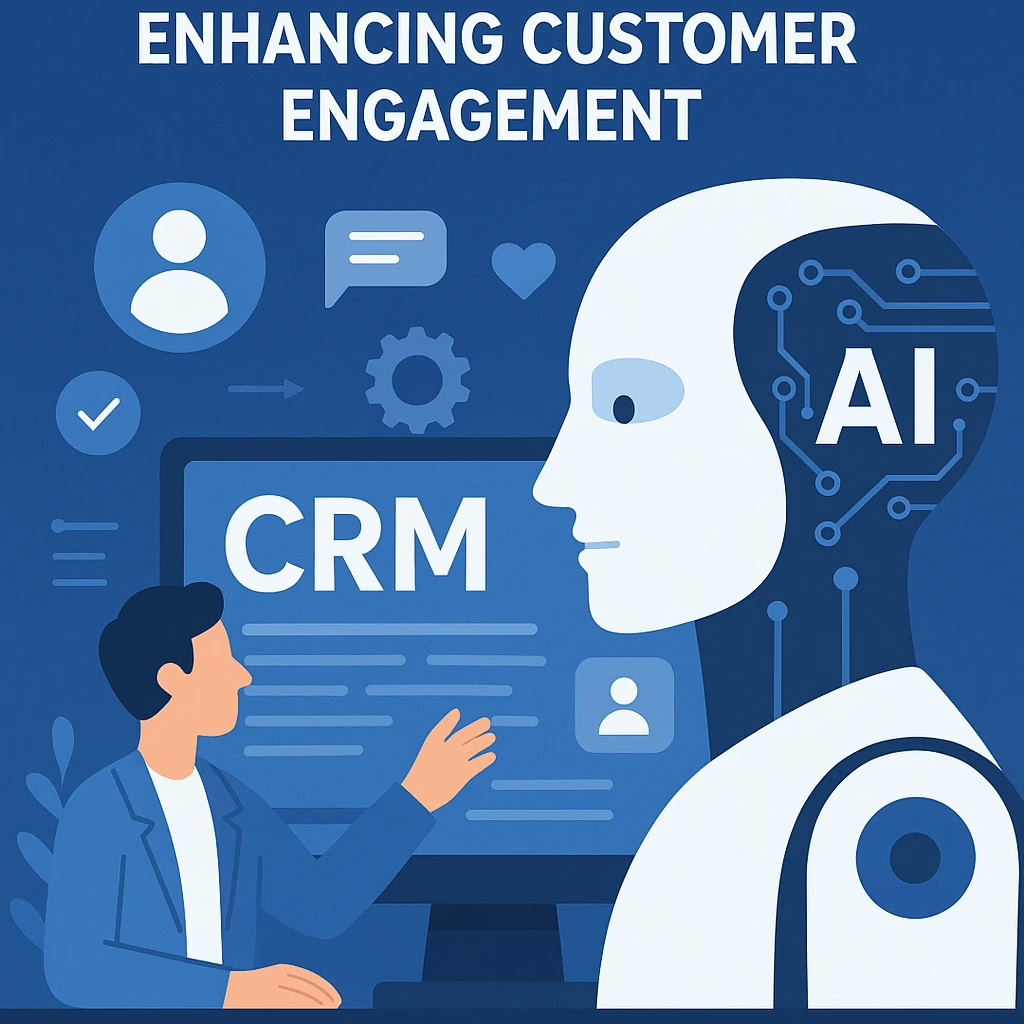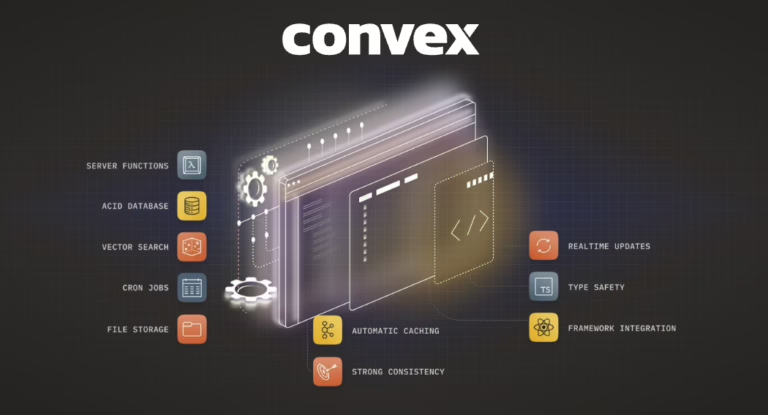In today’s competitive market, utilizing AI in customer relationship management (CRM) is essential for enhancing engagement. AI allows businesses to analyze customer data and behaviors, creating personalized marketing strategies that cater to individual needs. Through predictive analytics, companies can anticipate customer preferences and improve their sales forecasting. Additionally, automating routine tasks like data entry and follow-ups saves time, allowing teams to focus on complex inquiries. AI chatbots improve customer support by providing 24/7 assistance, while sentiment analysis helps gauge public opinion on products. Overall, investing in AI not only boosts efficiency but also fosters loyalty—leading to greater profitability and a distinct competitive edge.
1. Personalization in Customer Engagement
AI plays a crucial role in personalizing customer engagement by analyzing vast amounts of customer data and behavior. For instance, e-commerce platforms can utilize AI to track users’ past purchases and browsing history, enabling them to provide tailored product recommendations. This level of personalization not only enhances the shopping experience but also increases customer satisfaction.
Moreover, businesses can create targeted marketing campaigns based on individual preferences. By sending personalized emails with product suggestions that align with a customer’s interests, companies can significantly boost their engagement rates. Customers are more likely to respond positively to communications that resonate with their past interactions, leading to higher conversion rates.
For example, Netflix uses AI to analyze viewing habits, allowing it to recommend shows and movies that align with individual tastes. This not only keeps users engaged but also encourages longer subscription durations, demonstrating how effective personalization can drive loyalty and profitability.
2. The Role of Predictive Analytics
Predictive analytics plays a crucial role in enhancing customer engagement through AI in CRM. By analyzing historical customer data, AI can forecast future behaviors and trends. For instance, if a customer frequently purchases workout gear in January, predictive analytics can suggest related products or promotional offers as the new year approaches. This proactive approach allows businesses to meet customer needs before they even arise, improving satisfaction and loyalty.
Moreover, predictive analytics aids in sales forecasting and inventory management. If a business identifies a pattern where certain products spike in demand during specific seasons, it can adjust inventory levels accordingly. This not only reduces overstock but also ensures customers find the products they want when they want them. As a result, customers experience a seamless shopping journey, increasing the likelihood of repeat business.
Additionally, predictive models can identify at-risk customers who may be on the verge of churning. By recognizing these signals early, companies can implement targeted retention strategies, such as personalized offers or special outreach efforts. This not only helps retain valuable customers but also fosters a deeper connection between the business and its clientele.
Identifying potential customer needs before they arise
Forecasting sales trends and customer behaviors
Enhancing marketing campaigns with targeted offers
Improving inventory management through demand predictions
Automating lead scoring to prioritize potential clients
Streamlining customer interactions by anticipating requests
Personalizing customer experiences based on predicted preferences
3. Benefits of Automation in CRM
Automation in CRM significantly streamlines operations, allowing businesses to focus on what truly matters: building relationships with customers. By automating routine tasks like data entry and follow-ups, teams can save valuable time that can be redirected toward more meaningful engagements. For example, instead of spending hours on manual data updates, a sales representative can use that time to understand customer needs better and strategize personalized outreach. Additionally, automation reduces the chances of human error, ensuring that customer information is accurate and up-to-date. This accuracy is crucial when crafting targeted marketing campaigns or managing customer inquiries. With automation, businesses can also implement consistent follow-up processes, ensuring no customer feels neglected, which can greatly enhance overall customer satisfaction.
Benefit | Description |
|---|---|
Saves Time | Automation of routine tasks like data entry and follow-ups minimizes time spent on repetitive activities. |
Reduces Human Error | Automated systems help in minimizing mistakes made during manual data handling. |
Increases Efficiency | With automation, employees can focus on complex tasks, leading to better productivity. |
24/7 Availability | AI tools like chatbots ensure customer queries are addressed any time of the day. |
Cost Savings | Long-term cost reductions are expected due to improved processes and customer satisfaction. |
4. Enhancing Customer Support with AI
AI is revolutionizing customer support by providing quick and efficient solutions to common queries. With AI chatbots, businesses can offer 24/7 customer service, allowing customers to get answers and resolve issues at any time. For example, a retail company can use a chatbot to assist customers with order tracking or product inquiries, which significantly reduces wait times and enhances satisfaction. Moreover, these chatbots can handle multiple inquiries simultaneously, ensuring that no customer feels neglected. The ability to analyze customer interactions in real-time allows AI to learn from past conversations, improving its responses over time. This means that as customers engage with the AI, they receive increasingly accurate and helpful assistance, leading to a more positive overall experience.
5. Understanding Customer Sentiment
AI plays a crucial role in understanding customer sentiment, which is key for businesses looking to enhance engagement. By analyzing data from various sources like social media, customer reviews, and survey responses, AI can identify how customers feel about a brand, product, or service. For instance, sentiment analysis tools can process thousands of tweets or Facebook posts in minutes, categorizing them as positive, negative, or neutral. This real-time feedback allows companies to respond quickly to customer concerns, improving overall satisfaction. Additionally, by recognizing patterns in sentiment, businesses can adjust their marketing strategies, product offerings, or customer service approaches to better align with customer expectations. For example, if a product receives consistent negative feedback about a specific feature, a company can prioritize improvements in that area, demonstrating to customers that their opinions are valued and considered.
6. Strategies for Improved Customer Retention
AI plays a crucial role in enhancing customer retention strategies. By utilizing predictive analytics, businesses can identify customers who are likely to churn. For instance, if a customer consistently makes purchases but suddenly stops, AI can flag this pattern, enabling companies to reach out with targeted offers or personalized communication to re-engage them.
Another effective strategy is the use of personalized marketing campaigns. When customers receive tailored promotions based on their past behavior, they feel valued and understood. For example, an online retailer might send discounts on products similar to those a customer has previously purchased, encouraging repeat business.
Additionally, implementing feedback loops through AI-driven sentiment analysis allows businesses to monitor customer satisfaction in real-time. If a customer expresses dissatisfaction on social media or through surveys, businesses can quickly address their concerns, showing that they care about their experience. This proactive approach not only resolves issues but also builds loyalty.
Finally, automating follow-up communications can keep customers engaged. Sending reminders for upcoming purchases or personalized check-ins after a significant purchase can make customers feel supported and appreciated, reinforcing their decision to stay loyal to the brand.
7. Making Data-Driven Decisions
AI excels at processing large volumes of data quickly and efficiently, providing businesses with actionable insights that drive decision-making. For instance, by analyzing customer interactions and purchasing patterns, AI can identify trends that might not be immediately apparent to human analysts. This empowers companies to tailor their engagement strategies based on solid evidence rather than intuition alone. For example, if data reveals that customers prefer a specific product feature, businesses can prioritize enhancing that feature to meet demand. Furthermore, AI can help predict future customer behaviors, allowing businesses to pivot their strategies proactively. Companies can better allocate resources, refine marketing campaigns, and improve customer experiences by leveraging these insights.
8. Integrating Multiple Data Sources
Integrating multiple data sources is crucial for modern CRM systems, especially when leveraging AI. AI can pull and analyze data from various platforms—such as social media, email, and website interactions—to create a unified view of customer behavior. This holistic perspective enables businesses to engage customers in a more meaningful way. For instance, if a customer has interacted with a brand on social media and made purchases on its website, AI can analyze these interactions to understand preferences and tailor communications accordingly. This integration not only enhances personalization but also allows for more accurate predictive analytics, improving overall customer engagement.
9. Achieving Cost Efficiency with AI
Implementing AI solutions in CRM can lead to significant cost savings, particularly in customer service operations. For instance, businesses can reduce the need for large customer service teams by utilizing AI chatbots to handle routine inquiries. These chatbots can operate around the clock, providing immediate responses to customer questions without the need for human intervention, which lowers labor costs. Additionally, the automation of repetitive tasks, such as data entry and follow-ups, minimizes human error and frees up staff to tackle more complex issues, ultimately increasing overall productivity. Over time, the return on investment (ROI) from AI initiatives often surpasses the initial outlay, as improved efficiency translates into enhanced customer satisfaction and loyalty. For example, a retail company that implemented AI-driven inventory management saw a drop in excess stock and reduced storage costs, further benefiting their bottom line. Thus, AI not only streamlines operations but also positions businesses to operate more efficiently in a competitive landscape.
10. Gaining a Competitive Advantage
Companies that effectively leverage AI in their CRM systems often find themselves at a significant advantage over their competitors. For instance, a retailer utilizing AI can analyze customer purchasing patterns to create targeted marketing campaigns that resonate with specific segments of their audience. This not only increases engagement but also fosters loyalty, as customers feel understood and valued. Additionally, businesses can respond faster to market changes by using AI-driven insights to adapt their strategies in real-time. For example, a travel agency that employs AI can quickly refine its offerings based on customer feedback and travel trends, ensuring that it remains relevant in a rapidly evolving industry. By harnessing the power of AI, companies can not only enhance their customer experiences but also position themselves as leaders in their respective fields.
11. How Novemind Can Help with AI Integration
Novemind specializes in seamlessly integrating AI solutions into your existing CRM systems, enhancing their overall capabilities. We understand that every business is unique, so we offer custom AI solutions tailored to meet the specific needs of your organization. This ensures that your engagement strategies align perfectly with your goals. In addition to integration, Novemind provides comprehensive training and ongoing support, equipping your team to effectively utilize AI tools for improved customer engagement. Our advanced data analysis services help businesses extract actionable insights from vast amounts of data, enabling data-driven decisions that enhance customer relationships. Furthermore, our AI solutions are designed with scalability in mind, allowing your business to grow without losing the competitive edge gained from understanding and meeting evolving customer needs.
Frequently Asked Questions
AI helps by providing personalized recommendations, automating responses, and analyzing customer data to understand preferences better.
AI analyzes large amounts of data to identify patterns and trends, helping businesses understand what customers want and how they act.
Yes, AI can automate responses and prioritize inquiries, allowing businesses to reply to customers more quickly.
AI enhances customer segmentation by using data to group customers based on behavior and needs, allowing for more targeted marketing.
Integrating AI can vary in complexity, but many modern CRM platforms offer tools and support to make the process easier.
Why Choose Novemind for Your AI Integration?
At Novemind, we specialize in AI integrations that empower your business to drive deeper engagement, improve customer retention, and operate more efficiently. Whether you’re looking to personalize customer journeys, automate your sales pipeline, or gain real-time insights through data analytics, we provide tailored AI solutions that integrate seamlessly with your existing CRM.
Visit our AI Integration Services page to see how we approach intelligent transformation.
Here’s what you can expect when you work with us:
- Custom AI Strategy – We assess your CRM ecosystem and design AI-powered features that align with your business goals and customer needs.
- Seamless Implementation – Our team ensures a smooth integration process, minimizing disruption and maximizing value.
- Real-Time Insights – With AI-driven dashboards, you’ll gain actionable intelligence to make smarter, faster decisions.
- Ongoing Training & Support – We don’t just set it and forget it. Novemind provides comprehensive training and ongoing optimization to ensure your team gets the most out of your AI tools.
- Scalability – As your business grows, our solutions scale with you, helping you stay ahead of the curve and your competition.




